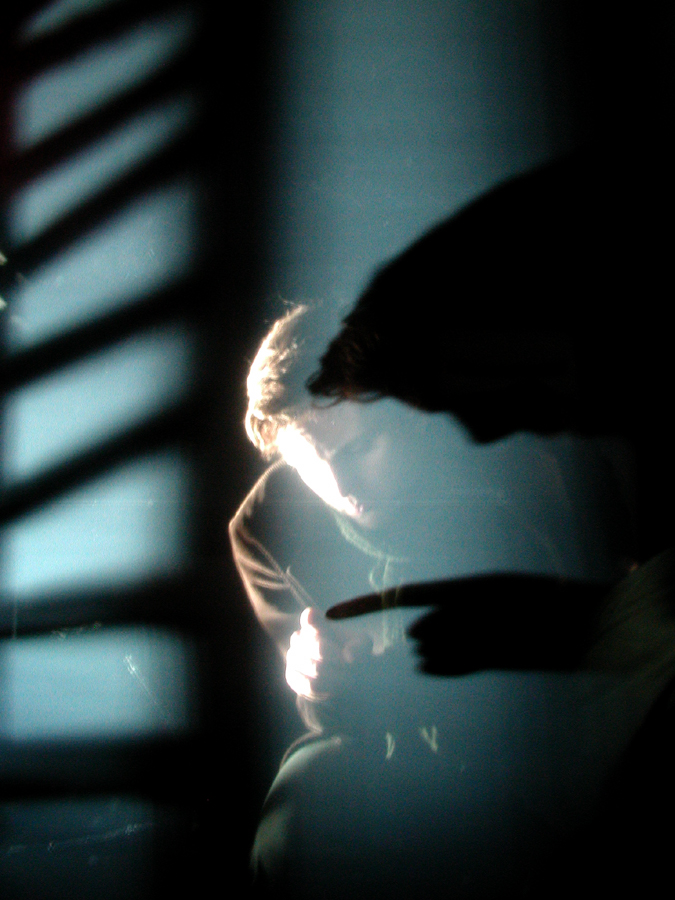“The Strong and Capable Shoulders of the Student When He Dreams”: Difficult and Haunting
Juliet Patterson caught the Flaneur show at Franklin Art Works recently. By her account, look for more by Jim Bovino and Flaneur; this is beautiful work.

The Strong and Capable Shoulders of the Student When He Dreams begins with a monologue spoken by an androgynous character standing in a bucket, dressed in a tuxedo suit and dropping marbles at her feet. “No film today,” she says, “there will be no film today. You’ll have to get your memories somewhere else.” It might be fair to say these opening lines are a kind introductory greeting to the production’s central motif: a life not lived, a life observed and “experienced” through the mechanisms of technology and the media. This is just one strain at work in this strange and haunting play, which by its own description is a “darkly poetic consideration of the relationship between the decline of idealized self-image and the emergence of nihilism and social pathology in the individual.”
Like many of Flaneur’s past productions, this piece relies on its poetic script, the art of the monologue and the singular performance to drive its action. Like many of Jim Bovino’s (writer and director) other works, the play refuses to follow a simple plot line and instead relies on enigmatic scenes where multiple metaphors are (or could be) at work. It isn’t entirely clear what the journey of the play is meant to reveal. It is, as it suggests, darkly poetic and indeed, interested in the social pathology in the individual.
There is one brilliant moment when the student asks, “Where are we?” and the professor (played by Cherrie Macht, in an aggressive and interesting performance) answers, “on the summit. ( long pause). “On the edge of the world.”
There are influences of Nietzsche, Brecht and others at work here. A good deal of the writing is beautiful and (is indeed) poetic. I did feel, however, as though the text too often lapsed into long passages that often failed to propel the action or any particular character forward. This may well be one of the very points of the production—but that isn’t made entirely clear.
Despite the lags in the script, there are some stellar performances here; notably, Charles Campbell as Sam and Don Mahley-Allen as the student.
While Flaneur’s work is challenging, it makes my heart glad that somewhere this kind of theater exists and that we are lucky enough to live in a city that still supports it. We are lucky, too, to have a company like Flaneur (recently named one of the dozen hottest small companies in America by American Theater magazine) to confront and haunt us. As one of the characters early on in the play says: “No more words—we have nothing but our experience.”